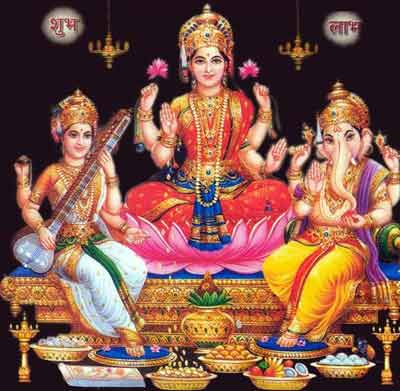Diwali/Deepavali is known as 'festival of lights'and it is the important festival for Hindus. These lights symbolises the victory of good over evil, light over darkness and knowledge over ignorance.This year Deepavali is celebrated on 13th November 2012.
 People celebrate diwali by cleaning and white-washing the house,lighting deepams/diyas, bursting fireworks, wearing new clothes and sharing sweets. A traditional visit to the Temple,early morning taking bath in hot water is a significant ritual of the day as it is believed that Goddess Lakshmi resides in hot water on early morning of that particular day.
People celebrate diwali by cleaning and white-washing the house,lighting deepams/diyas, bursting fireworks, wearing new clothes and sharing sweets. A traditional visit to the Temple,early morning taking bath in hot water is a significant ritual of the day as it is believed that Goddess Lakshmi resides in hot water on early morning of that particular day.Deepams, traditionally fueled by mustard oil, are placed in houses, shops and in public places.The lamps are lit to help the goddess Lakshmi find her way into people's homes.
Doorways are hung with torans of mango leaves and marigolds. Rangoli are drawn on the floors.Traditionally, lotus flower is drawn mostly as it is the image of Lakshmi . Fireworks plays a big part in Diwali celebrations, although in recent years there has been a move against them because of noise and atmospheric pollution and the number of accidental deaths and injuries.
People start the new business year at Diwali, and some Hindus will say prayers to the goddess for a successful year.On Diwali ocassion,some people build a small altar to the goddess and decorate it with money and with pictures of the rewards of wealth, such as cars and houses.There are various legends and stories associated with the Diwali festival. The story of Bali, Emergence of Laxmi, Krishna Narakasur Fight, Victory of Rama over Ravana and many more.
- In northern India, Diwali celebrates Rama's return from fourteen years of exile to Ayodhya after the defeat of Ravana and his subsequent coronation as king;
- In Gujarat, the festival honours Lakshmi, the goddess of wealth;
- In Nepal and South India, Diwali commemorates the victory of Lord Krishna over the demon king Narakaasura;
- In Bengal, it is associated with the goddess Kali.

No comments:
Post a Comment